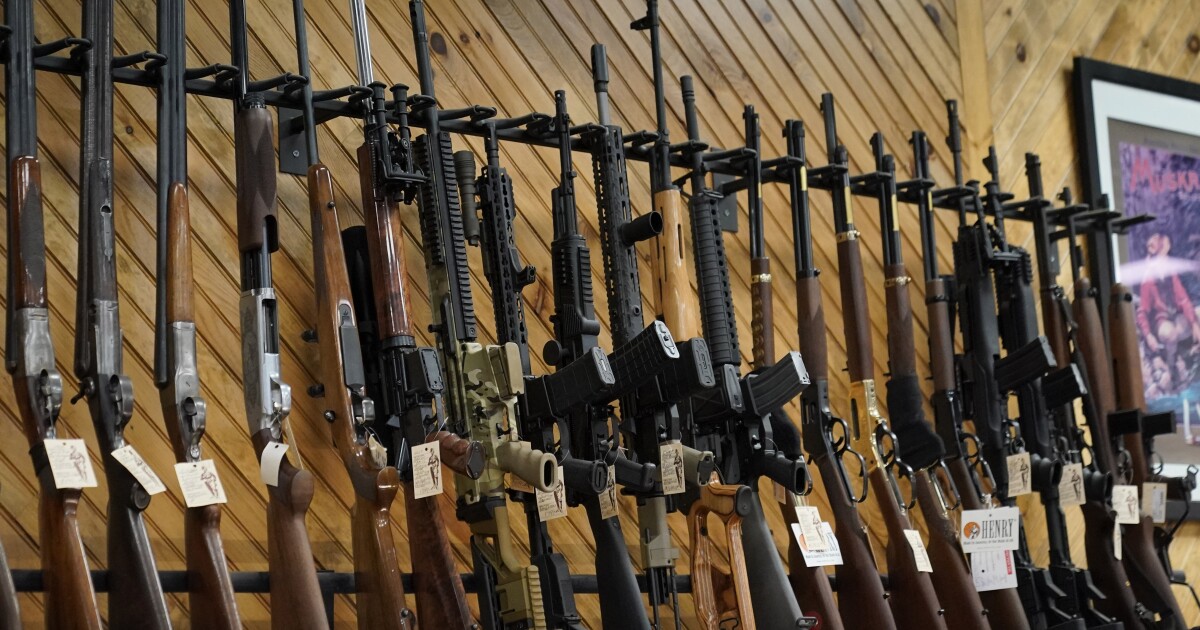

A Delaware law banning “assault weapons” and standard-capacity magazines that was signed last year, just days after the Supreme Court issued a Second Amendment ruling, is now being challenged by 20 states.
On July 10, a coalition of 20 states filed an amicus brief supporting the Delaware State Sportsmen’s Association in its lawsuit against the Delaware Department of Safety and Homeland Security. The coalition argues two Delaware bills violate the Constitution and that lower courts that upheld the law failed to read the Supreme Court’s 2022
Bruen v. New York Rifle & Pistol Association ruling properly, which held gun laws must conform with the nation’s historical tradition of firearms regulation.
NINE TAKEAWAYS FROM FBI DIRECTOR CHRISTOPHER WRAY’S TESTIMONY
U.S. District Court Judge Richard Andrews in March denied the DSSA and other groups a preliminary injunction blocking Delaware from enforcing HB 450, which bans certain pistols, semiautomatic rifles, and ammunition magazines, arguing that they would not likely succeed on the merits.
Andrews, an appointee of former President Barack Obama, said Delaware’s ban was consistent with historic regulations on weapons.
But gun rights groups involved in the challenge have appealed to a three-judge panel on the U.S. Court of Appeals for the 3rd Circuit, arguing the laws subvert the rights of law-abiding gun owners by “prohibiting Delawareans from possessing a whole class of firearms — semiautomatic pistols and long guns as well as ammunition magazines capable of holding over 17 rounds of ammunition.”
The coalition of states, led by Montana Attorney General Austin Knudsen, also says Andrews’s analysis “falls short of any ‘nuanced’ inquiry Bruen requires,” according to their 34-page brief.
“Nearly all of the historical regulations that the district court relied on stop short of complete bans, and instead tailored their prohibitions to minimize the criminal use of certain dangerous and unusual weapons,” the brief read.
Stephen Halbrook, a senior fellow at the Independent Institute and a lawyer known for his involvement in Second Amendment litigation, published a blog post for Reason arguing that Delaware effectively “plagiarized California’s 1989 findings that it was imperative to ban any gun that is not a ‘sports or recreational firearm.'”
“The state ignored the Delaware Bill of Rights guarantee of the right to bear arms ‘for the defense of self, family, home and State,'” Halbrook wrote, also noting the state “disregarded” an admonition in the landmark 2008 decision in District of Columbia v. Heller that self-defense is “the central component of the right itself.”
The Democratic-controlled state legislature passed the firearms restrictions in response to several mass shootings last year, including the Uvalde, Texas, shooting that saw 19 children and two adults killed at an elementary school.
DSSA, which is a state-level affiliate of the National Rifle Association, alleges Delaware has “criminalized possession, transportation and sale of common firearms used by law-abiding citizens for lawful purposes — mislabeling them as ‘assault weapons’ — making it a felony for law-abiding citizens to exercise their fundamental right to keep and bear such arms.”
Additional gun rights groups, including the Firearms Policy Coalition and the Second Amendment Foundation, have filed similar challenges that have now been consolidated into the appeal at the 3rd Circuit.
CLICK HERE TO READ MORE FROM THE WASHINGTON EXAMINER
The multistate brief against Delaware’s gun control law was joined by attorneys general from Arkansas, Alabama, Georgia, Idaho, Iowa, Indiana, Kentucky, Louisiana, Missouri, Mississippi, Nebraska, North Dakota, New Hampshire, South Dakota, South Carolina, Utah, Virginia, Wyoming, and West Virginia.
Separately, Delaware’s Democratic-controlled legislature has advanced a bill that would require people who want to purchase a firearm to be fingerprinted, undergo training, and obtain permission from the state. However, lawmakers are holding off on pushing the bill to a floor vote to determine whether the state can fund the program.






